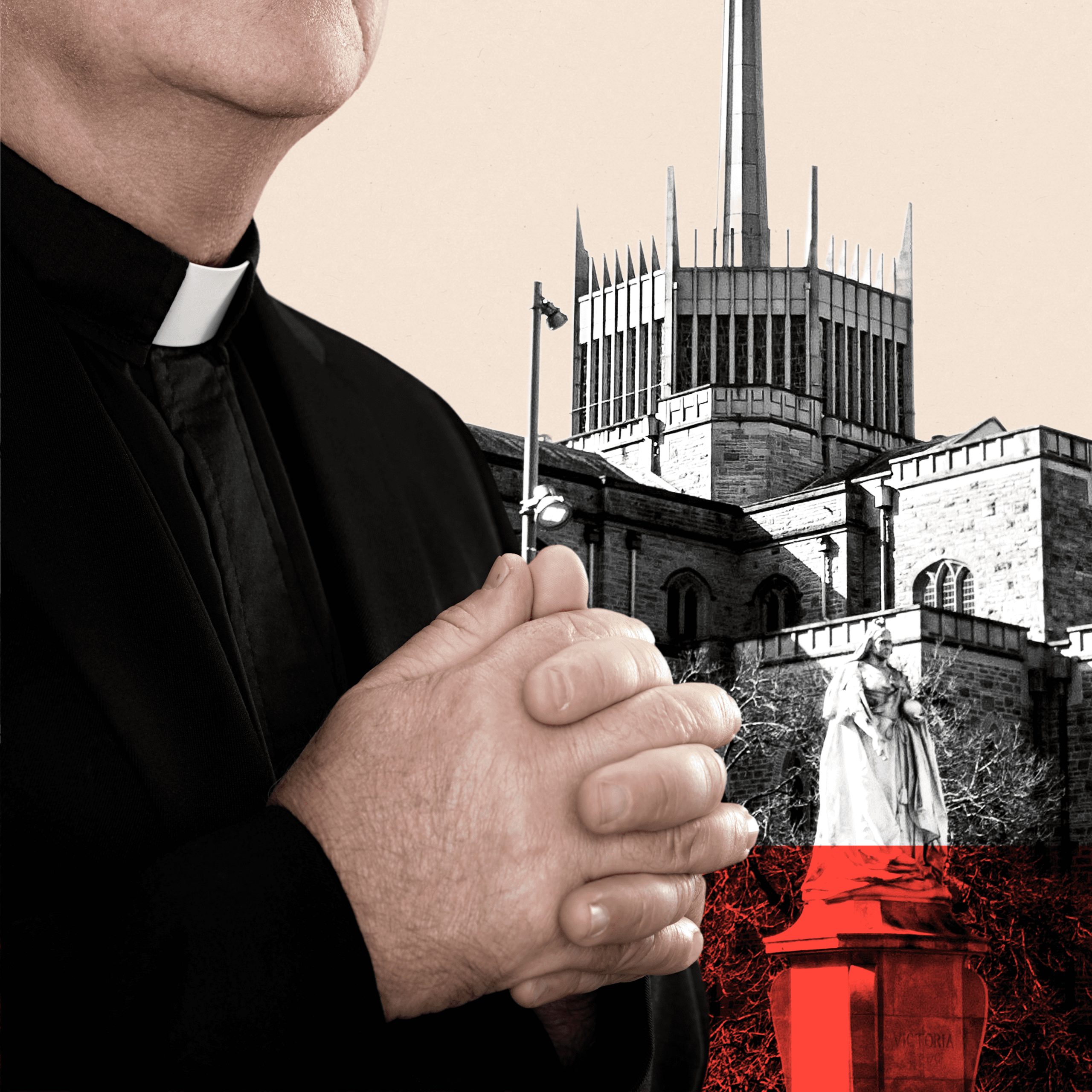
After decades of controversies and dozens of survivors speaking out, the Church of England still faces fierce criticism for the way it responds when members of the clergy are accused of abuse.
A BBC investigation into how it dealt with allegations about Blackburn priest Andrew Hindley exposed deep and continuing failings in the Church’s child protection system.
After the news about Canon Hindley broke earlier this week, the current Dean of Blackburn, the Very Revd Peter Howell-Jones, acknowledged there had been “a meteoric failure of structure and systems which should have been addressed years before”.
Asked if - given the details we now know - he trusts the Church to which he belongs, the Dean said, “I categorically do not.”
Canon Hindley was offered a secret six-figure pay-off after being assessed as a potential risk to children and young people. The priest, who denies any criminal activity or wrongdoing, was subject to five police investigations, including into allegations of sexual assault, but has never been charged with any crime.
Unable to rely on criminal prosecutions, the Church commissioned risk assessments by child protection experts. Several concluded Canon Hindley posed a potential risk to children and young people. But he remained in post.
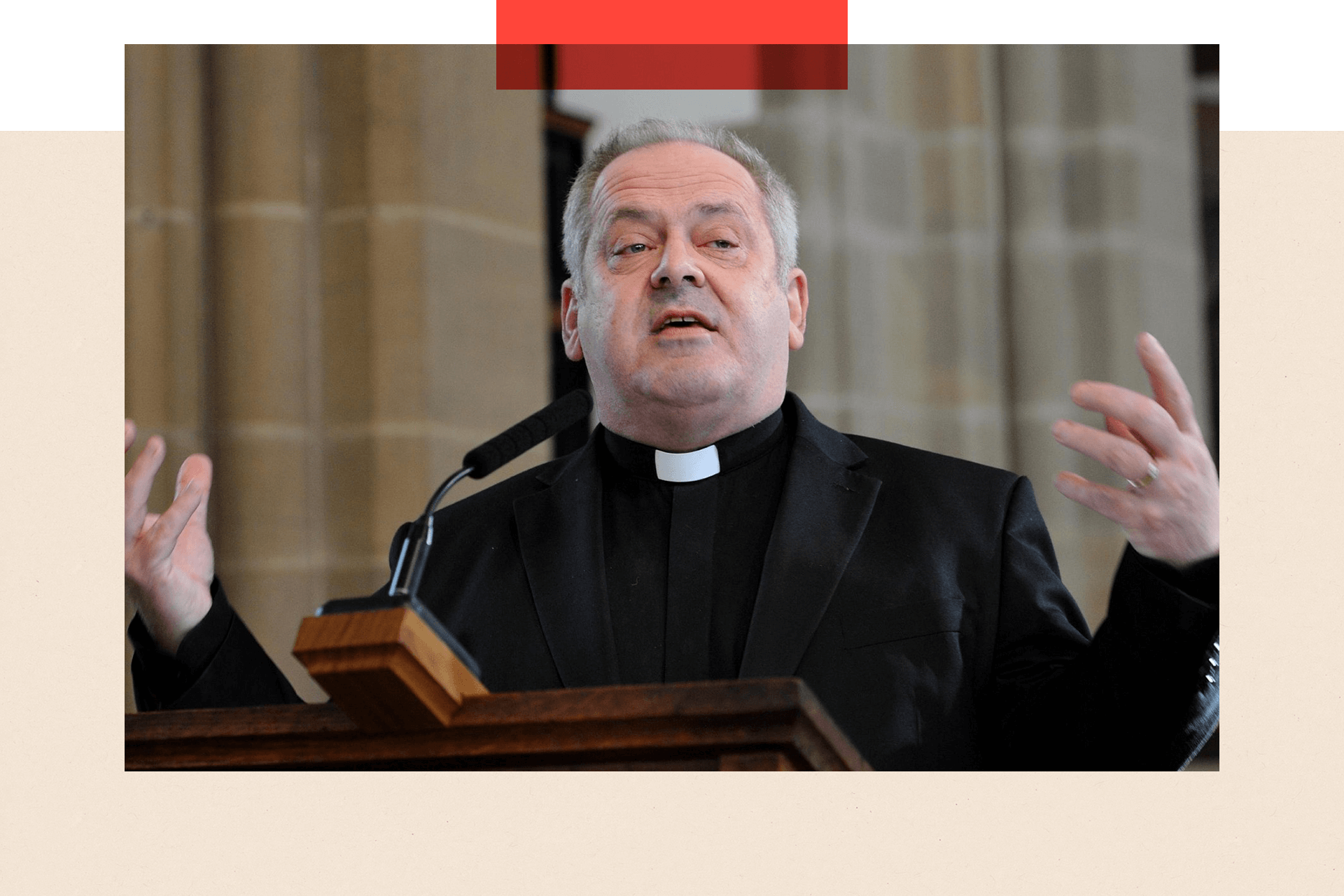
Andrew Hindley has always denied any wrongdoing
Church leaders say they were bound by their procedures and, when those failed, they had only one option: a financial settlement. The Church told the BBC this was to end a legal claim made by the priest after he was forced to retire early, although we revealed there had been earlier unsuccessful attempts to pay him off.
So where exactly did the Church’s procedures fail? Some of the new details that we reveal here about decisions made during the process are staggering.
But after so many scandals, reviews and inquiries over the years, the question for many is why things have not been put right before now. Some within the institution itself have expressed their exasperation.
“If the Church, of which I am part, had begun to address some of its structures 10 or 15 years before, these things may never have happened and I’m deeply sorry for that,” said the Very Revd Peter Howell-Jones.
Long-time observers of Church of England practices are starting to put the continued failings down to more just a lack of understanding of what needs to be done.
“I have serious concerns about the attitudes and the willingness [of the Church] to get its house in order. I'm not sure that willingness is there at this time, and I don't believe that the Church has a comprehensive commitment to learn from experience,” says child protection expert, Dr Ian Elliott.
Dr Elliott has carried out safeguarding reviews of religious institutions across the world. He says that while Canon Hindley’s case is unusual, serious problems with Church safeguarding have been pointed out many times before.
That includes Dr Elliott’s own review of the Church of England published in 2016, in which he was critical of safeguarding practices and urged changes including better ways to intervene and improved independent oversight.
He considers the Blackburn Cathedral case involving Canon Hindley further proof that recommendations have not been implemented.
The controversial way that the saga ended was as a result of Church officials apparently believing they did not have legal grounds to remove him from post.
“You have to intervene, to eliminate and manage the risk that has been identified. And that has to come first, before legal considerations,” say Dr Elliott
A long timeline of allegations
Canon Hindley, 65, told the BBC he was the target of a campaign to drive him from the church that was motivated by homophobia and personal agendas.
But allegations of inappropriate behaviour spanned from the 1990s to the most recent formal complaints made in 2018. He finally left his townhouse on cathedral grounds in 2022.
The case was a test of the safeguarding regime the Church of England had built in the early 2000s.
In the glare of uncomfortable headlines about abuse scandals, its aim was to put vulnerable people at the centre of decisions.
At its heart was a disciplinary system that, through hearings, was supposed to investigate and potentially remove members of clergy accused of misconduct.
Some now blame that very system for the drawn-out handling of the case. And despite concerns within the Church about the risks Canon Hindley posed, he was never subject to any hearings.
In 2007, Canon Hindley was suspended under the system - reportedly the most senior cleric at the time to face such sanction - after he was accused of an inappropriate discussion with a 15-year-old boy who was doing work experience at Blackburn Cathedral.
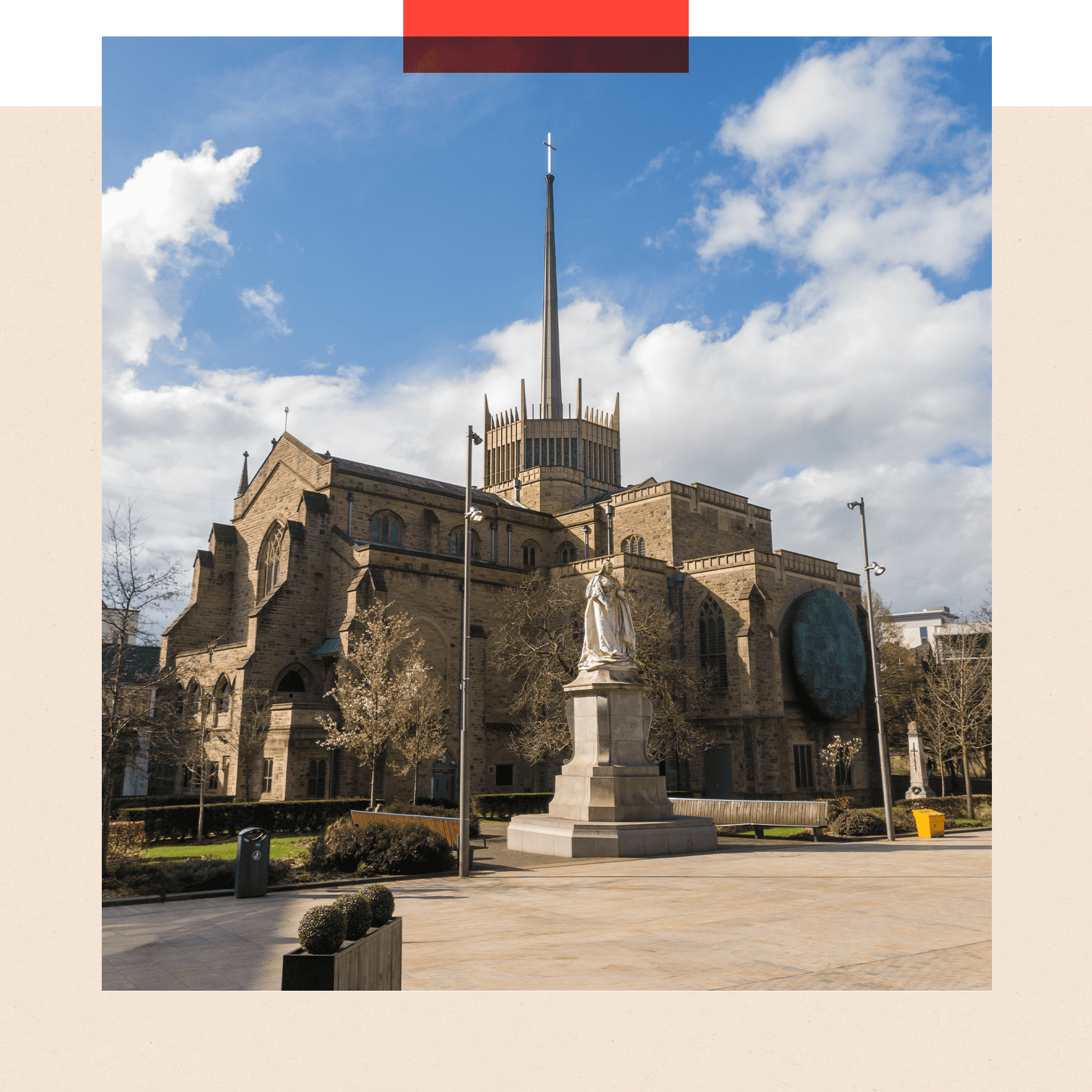
Blackburn Cathedral was the focal point of safeguarding concerns
He denied wrongdoing and a complaint of “conduct unbecoming of a priest” was dropped after the boy’s parents withdrew permission for their son to be involved in the proceedings.
Over the years, numerous subsequent opportunities were missed for complaints against Canon Hindley to be investigated and acted on within the Church.
One was in 2019, when he was accused of sexually assaulting a young male colleague by touching his genitals. The alleged incident had happened in 2016, but when the complaint was made the case was stopped from going to a Church tribunal hearing because more than 12 months had passed since the alleged incident.
The decision to allow some types of Church disciplinary case to progress rests with a key official called the President of Tribunals. The President and their deputy are roles taken by senior judges and are appointed by the Church.
One of these gatekeepers played a key part in stopping another disciplinary case against Canon Hindley going ahead in 2020.
It concerned an alleged victim of Canon Hindley, referred to in leaked church papers as Boy C. He had tried for almost 20 years to have his complaint aired.
A later internal Church report said that Boy C was a credible witness and that his allegations were that he was “befriended and groomed by Andrew Hindley which led to him participating in sexual acts with him, acts which he now considers to constitute a sexual assault. He feels he was taken advantage of as a naive and vulnerable young person.”
The allegation was investigated by police in 2001 but discontinued. This was because Boy C originally told officers he was 18 at the time of the alleged incident, but later said he was 17, which was then below the age of consent for sex between men. This change of account was assessed by prosecutors to undermine the chances of conviction.
With the police investigation ended, and Canon Hindley always denying wrongdoing in the case, Boy C turned to the Church to do something about the allegations.
But on five separate occasions, the case was stopped from going to internal hearings. The final time - in April 2020 - Sir Mark Hedley, Deputy President of Tribunals, made what appears to be a startling ruling.
He documented that while he thought that it could be proved the case involved non-consensual sex, he could not be sure if the alleged victim was 17 or 18 at the time, so the case could not go forward to a tribunal.
Sir Mark, who no longer serves in this position, told the BBC that his only legal consideration was the age of Boy C, because at that time, adults only had 12 months to make a complaint.
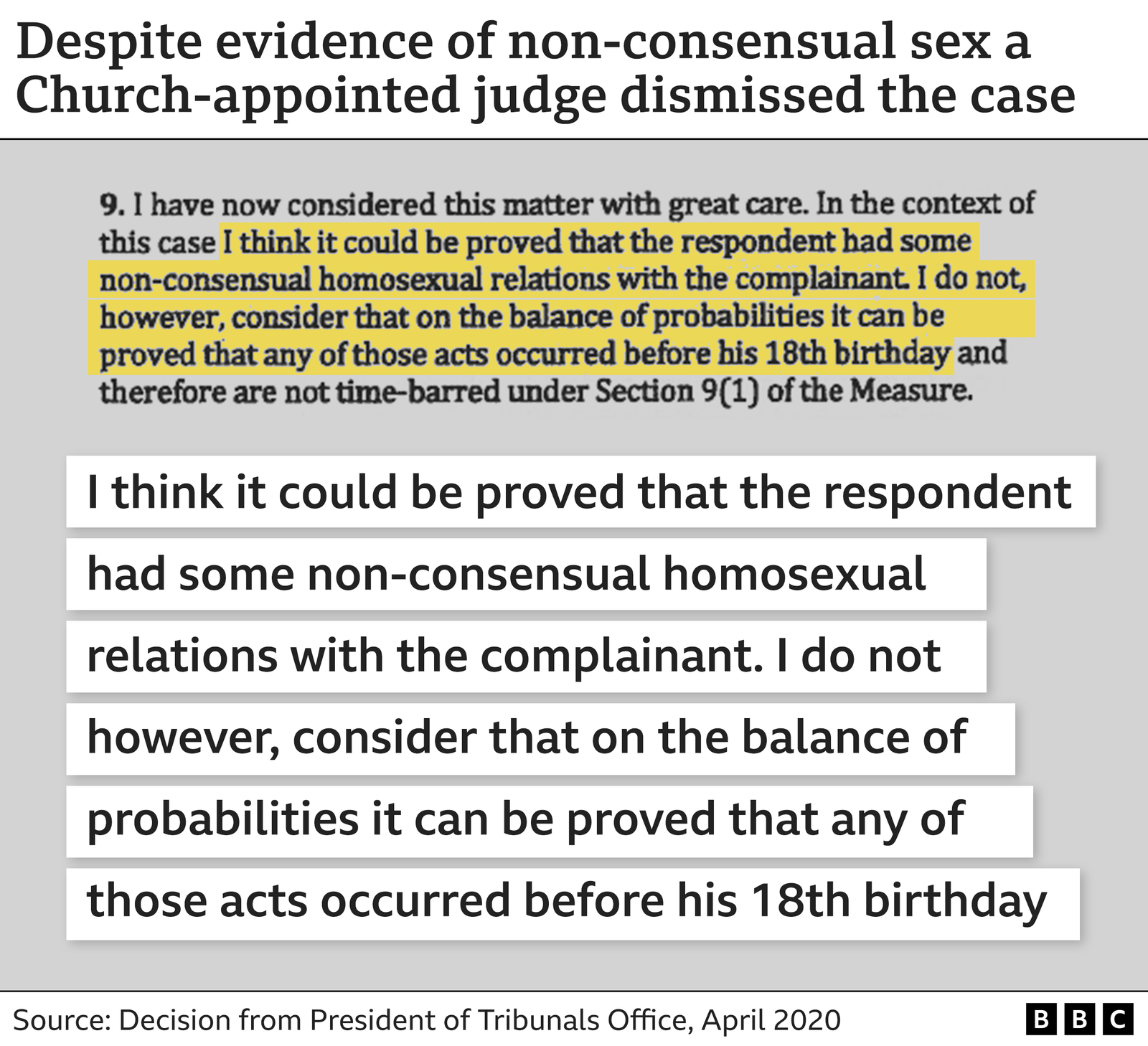
In fact, the rules had been changed in 2016 to allow adults considered vulnerable to have cases progressed.
Safeguarding expert Dr Ian Elliott says that the decision to not proceed with the case points to a system in disarray.
“You’re not trying to apply a criteria of ‘beyond all reasonable doubt’ within safeguarding. You're not going to reach that level of proof. But from a safeguarding point of view, you can't lose sight of the fact that you must act.”
‘The Archbishops had no power to act’
One more instance in this case drew an astonishing response from the Church’s top leadership.
It followed allegations Canon Hindley had indecently assaulted a woman, “improperly kissed” a teenage girl and “improperly touched two other men” at a party in the cathedral gardens in May 2018.
The police investigated but again no criminal charges were brought. Canon Hindley, who was suspended, denied sexual assault, but in papers we have seen he conceded, “I did not cover myself in glory.”
In April 2020 the same official, Sir Mark Hedley, ruled: “Whilst alcohol provides no defence to assault, for an assault to be constituted, there does have to be some degree of deliberation.” He dismissed the case.
When the BBC asked why the alleged assaults were not brought to hearings, Sir Mark said his “decision was made after careful consideration of all the material available“ including an internal Church investigation into the incident.
Nevertheless, the ruling was greeted with “profound unease” by senior people at Blackburn Cathedral, who wrote to the Archbishops of Canterbury and York asking them to intervene. But that intervention in the disciplinary process, even just to allow cases to proceed to gathering more evidence and conducting hearings, did not happen.
The Church of England told the BBC: “The Archbishops had no power to affect the outcome and there is no way in which they could lawfully have intervened.”
From documents, we do know that some Church leaders were trying to do what they thought was the right thing, but felt they had to bypass their own disciplinary system and resort to extreme measures.
The options included a drastic proposal to close Blackburn Cathedral completely “to keep people safe”, and Archbishop of Canterbury Justin Welby also suggested leaking details of the situation to the press. We put the latter point to Lambeth Palace but did not receive a response on this specific question.
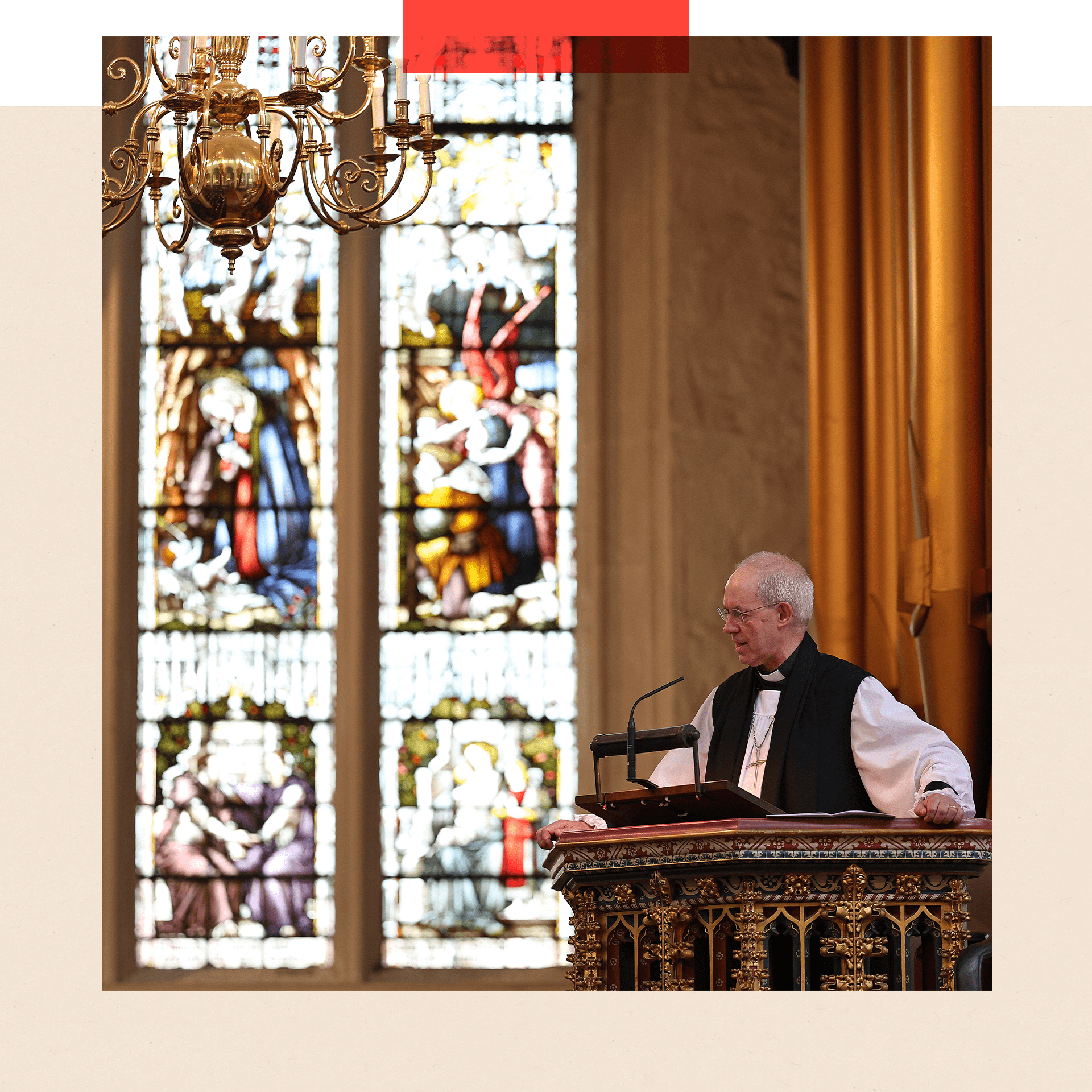
Justin Welby suggested leaking details to the press
It ultimately ended a different way, with Canon Hindley being forced to retire, but only finally leaving after being offered a financial settlement of about a quarter of a million pounds.
It points to a dysfunctional state of affairs, albeit with some Church leaders feeling they had little choice in their efforts to protect children and vulnerable young people.
Good child protection practices are expected of all organisations, but perhaps it is even more incumbent on religious institutions to get things right because of the moral leadership many expect of them.
More from InDepth
What does science tell us about boxing’s gender row?
- Published9 August 2024
Starmer will be judged on how he tackles root causes of riots
- Published11 August 2024
What does science tell us about boxing’s gender row?
- Published9 August 2024
Survivors’ trauma
Speak to survivors of Church of England abuse and many will report feeling they have been, and in some cases still are, treated with contempt. Many are also still waiting for their own financial settlements, for compensation for what they endured.
Safeguarding professional Dr Ian Elliott is concerned the pay-off to Canon Hindley will “hurt and shock” survivors.
“It really turns the knife for them. I haven't talked to any survivors within the Church of England who feel any compensation they received has been generous, and they would say it has been very hard-won,” Dr Elliott said.
In fact, a compensation scheme for survivors promised by the Church has yet to be established. Last year, the BBC discovered that the Church’s Independent Safeguarding Board (ISB) found that an interim scheme set up to help survivors while they waited for compensation actually risked re-traumatising victims.
This is because people who have suffered abuse at the hands of an institution may experience further trauma when that institution fails to handle their complaints.
In a report, the ISB said the support scheme appeared to have been “set up in haste, underthought and under-resourced”. Soon after, the board was disbanded with the Church saying relations between the independent experts on the board and bishops had “broken down”.
Two of the three-member board, both experienced safeguarding professionals, had previously said the Church had been obstructive, and had interfered in their work.
These are issues playing out now. But dare to look a little further and there is more cause for concern. A review in 2022 found there were at least 383 Church abuse cases that either have never been dealt with or were left unresolved.
This is not to say there are not good people within the Church of England striving to do things better.
Dr Elliott hopes this case may help empower them to reform child protection, leading to “change for the sake of everyone within the Church, but particularly for those who are vulnerable, and those who have suffered harm”.
Get in touch
InDepth is the home for the best analysis from across BBC News. Tell us what you think.
BBC InDepth is the new home on the website and app for the best analysis and expertise from our top journalists. Under a distinctive new brand, we’ll bring you fresh perspectives that challenge assumptions, and deep reporting on the biggest issues to help you make sense of a complex world. And we’ll be showcasing thought-provoking content from across BBC Sounds and iPlayer too. We’re starting small but thinking big, and we want to know what you think - you can send us your feedback by clicking on the button below.
